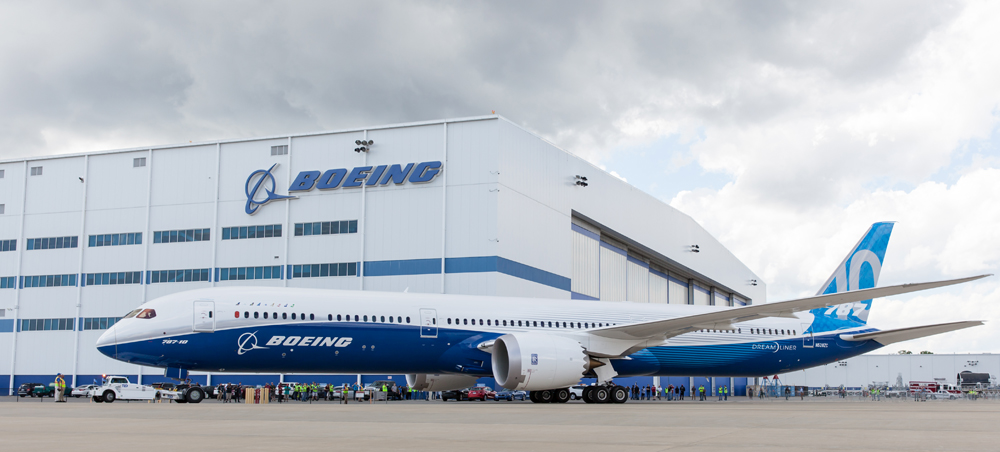Boeing gets a boost
March 15, 2018 | Expert Insights

Boeing is now being considered the frontrunner to land a contract with India worth over $15 billion. The Indian government has requested the nation’s air force to consider the company’s twin-engine planes. India’s air force’s combat fleet is fast depleting as nearly 13 squadrons will reportedly be retired over the next 10 years, as they will age out of service.
Background
Boeing is an American multinational corporation that is primarily known for designing, manufacturing, and selling airplanes. It also manufactures rotorcrafts, rockets, and satellites across the world. It is the largest aircraft manufacturer and second largest defence contractor in the world. It deals in defence crafts, commercial airlines, as well as related services. The company has five main divisions: Boeing Commercial Airplanes; Boeing Defence, Space & Security; Boeing Shared Services Group; and Engineering and Capital divisions.
In 2017, the company ranked 24th on Fortune 500. Boeing reportedly received 912 net orders valued at $134.8 billion last year, and revenue grew by 5.5%.
In September last year, the World Trade Organization reversed a ruling that stated that Boeing received illegal subsidies from the United States. The case had been filed by the European Union and Airbus.
Analysis
In what is being reported as a sudden change, Boeing is being considered the front runner to land a contract with India worth over $15 billion. It might be that the company will provide the Indian air force with new fighter jets. Reuters has reported that the changes occurred after the Indian government requested the air force to consider the company’s twin engine planes. Boeing Co. has been in the running to get a contract with the Indian navy as well.
The report comes as a surprise for Lockheed Martin Corp. and Saab AB who had been considered part of a two horse race to land the deal. It had been down to Lockheed’s F16 and Saab AB’s Gripen. Both these companies had agreed to work with local contractors in order to boost Indian Prime Minister Narendra Modi’s Make in India campaign.
Lockheed in a statement has noted, “Our proposed F-16 partnership with India stands firm.” In 2017, the company had picked Tata Advanced Systems as its local partner. “The Government of India has not yet issued formal requirements but we are continuing to support government-to-government discussions and engage with Indian companies about F-16 industrial opportunities,” Lockheed said.
Sweden’s Saab is also reportedly unaware of the latest developments. “We have seen the reports in the Indian media, but no new formal communication has been made to us regarding the fighter programme,” said Rob Hewson, Saab Asia Pacific’s head of communications.
The nation’s defence ministry is likely to issue a request for information (RFI) over the next few weeks. This is considered as the first step in procurement. “The IAF wants the RFI issued within weeks and get the process started,” said the source, who declined to be identified because he was not authorised to speak to the media. “The problem is that government keeps shifting what it wants.”
“Operational costs are going up with increased manpower, higher wages and general inflation. The Ministry of Defence doesn’t have the luxury to go for too many platforms despite the rapidly falling squadron strength of the air force,” said Amber Dubey, partner and India head of aerospace and defence at global consultancy KPMG.
Boeing India President Pratyush Kumar has been enigmatic noting, “We will follow the MoD’s lead on their process and will be responsive to their needs if we are asked to provide any information.”
Richard A. Bitzinger, visiting senior fellow at Singapore’s S.Rajaratnam School of International Studies, said, “I am never surprised by what the Indians do when it comes to their procurement tenders. They are constantly changing the rules, changing their minds, and often even cancelling orders mid-way through. The Indians have a remarkable knack for snatching defeat from the jaws of victory.”
The nation’s annual defence capital procurement budget is between $14 billion and $15 billion. This budget has to be spread across all its branches that includes navy, army and other bodies.
Assessment
Our assessment is that if this agreement comes to fruition, then it will be a massive boost for Boeing as its only other foreign customer is the Royal Australian Air Force. However, the latest developments are also indicative of how erratic the weapons procurement process is within India. Even though the nation has been aware for 15 years that it needs more fighters for its depleting air force, the country still has only 3/4th of the aircraft it needs. This should be a cause for concern as the nation is almost entirely surrounded by unfriendly neighbours.








Comments